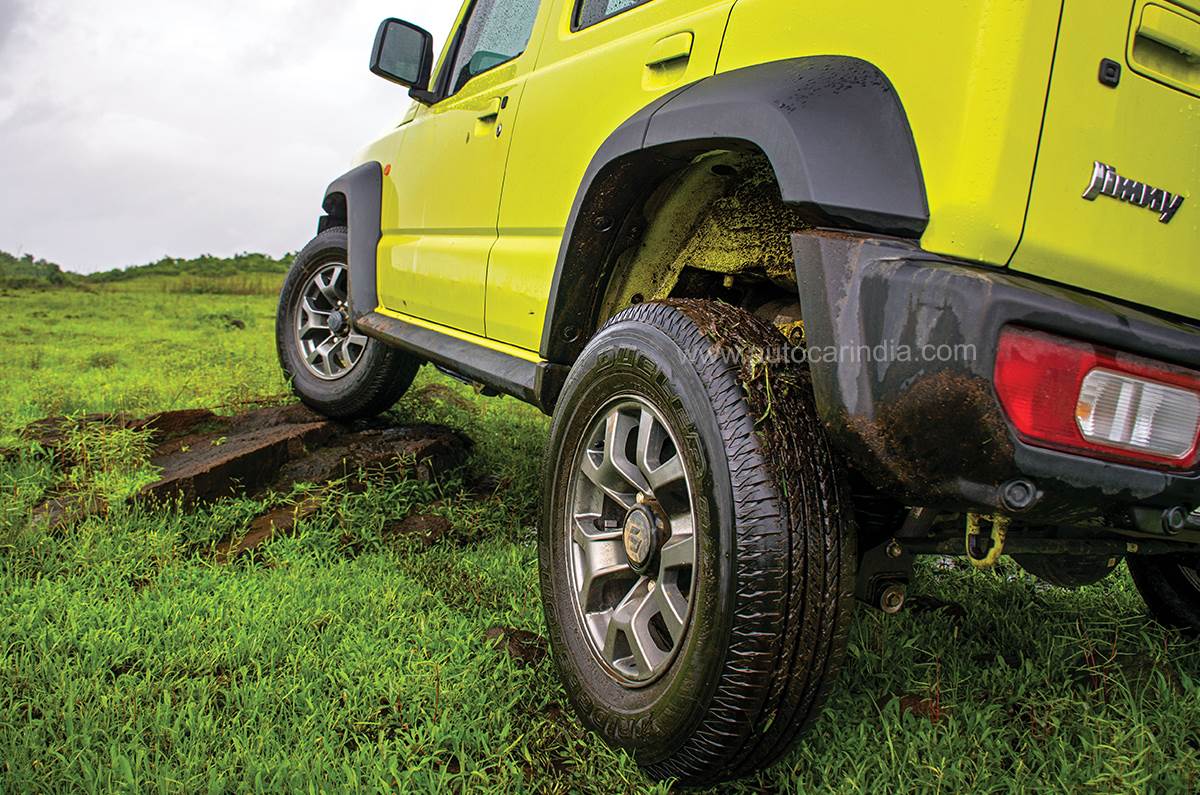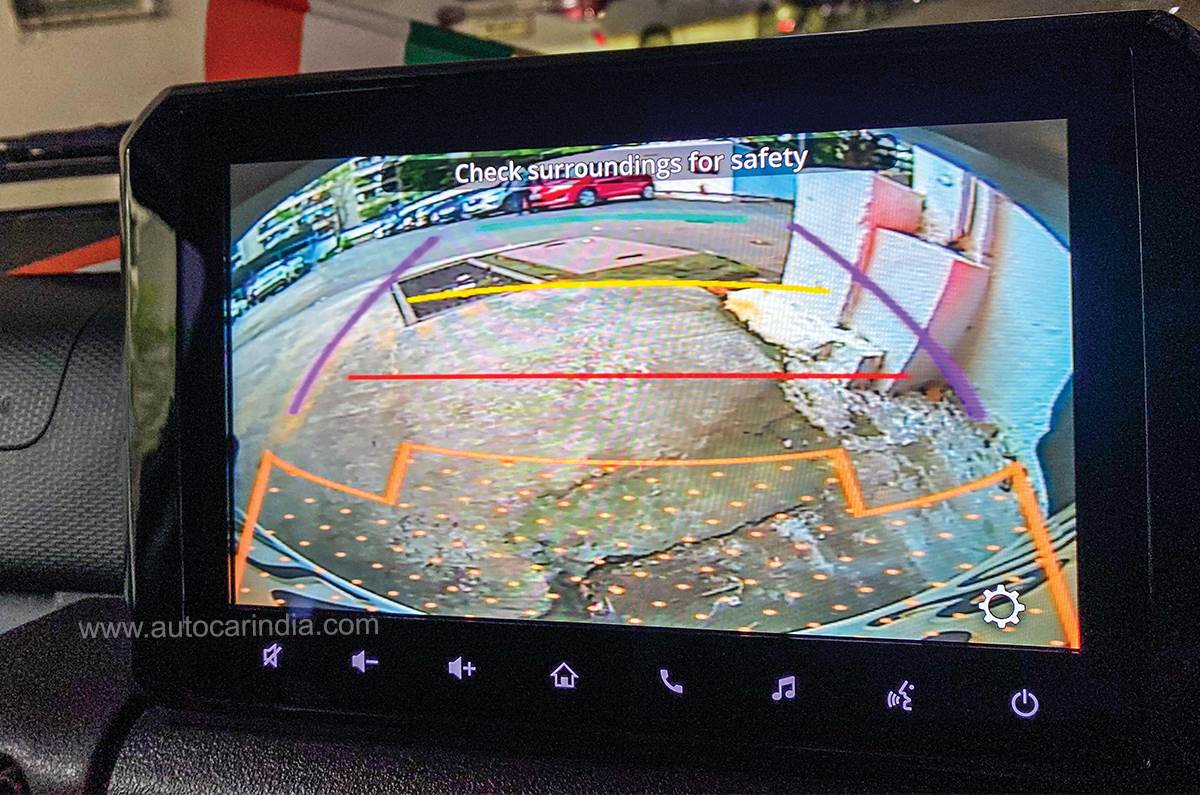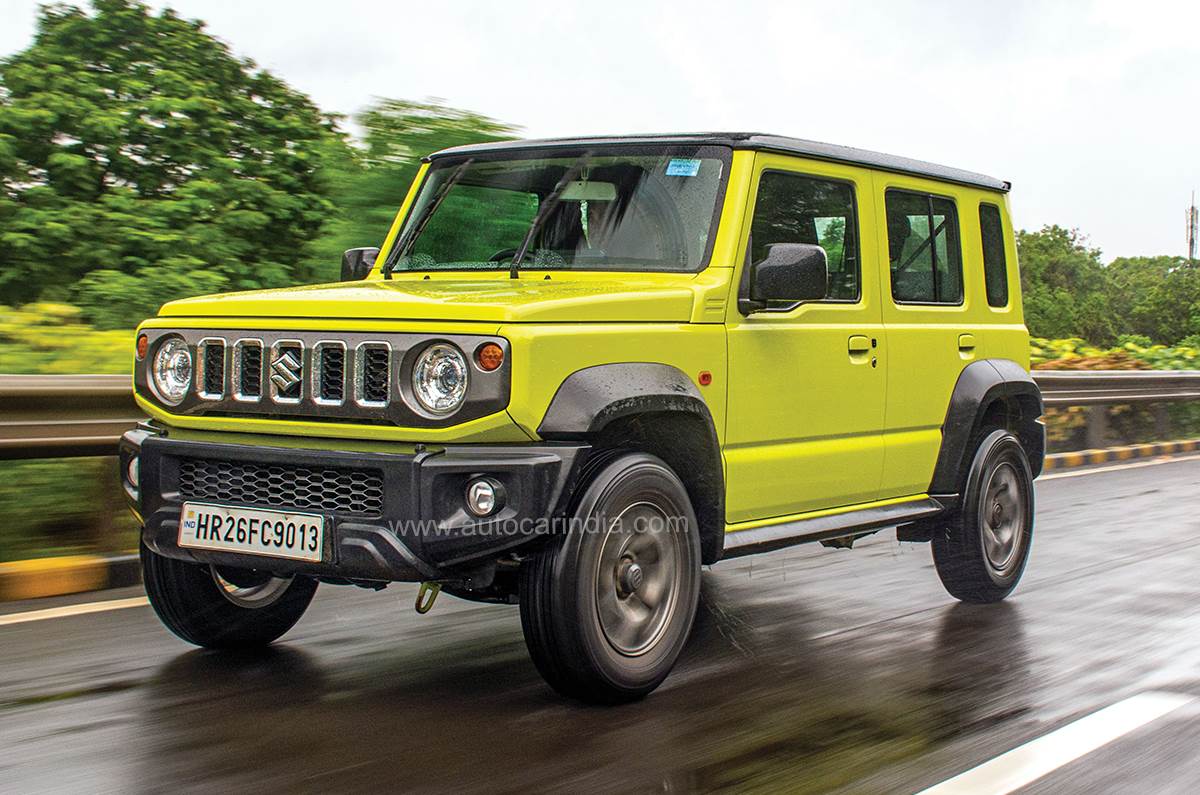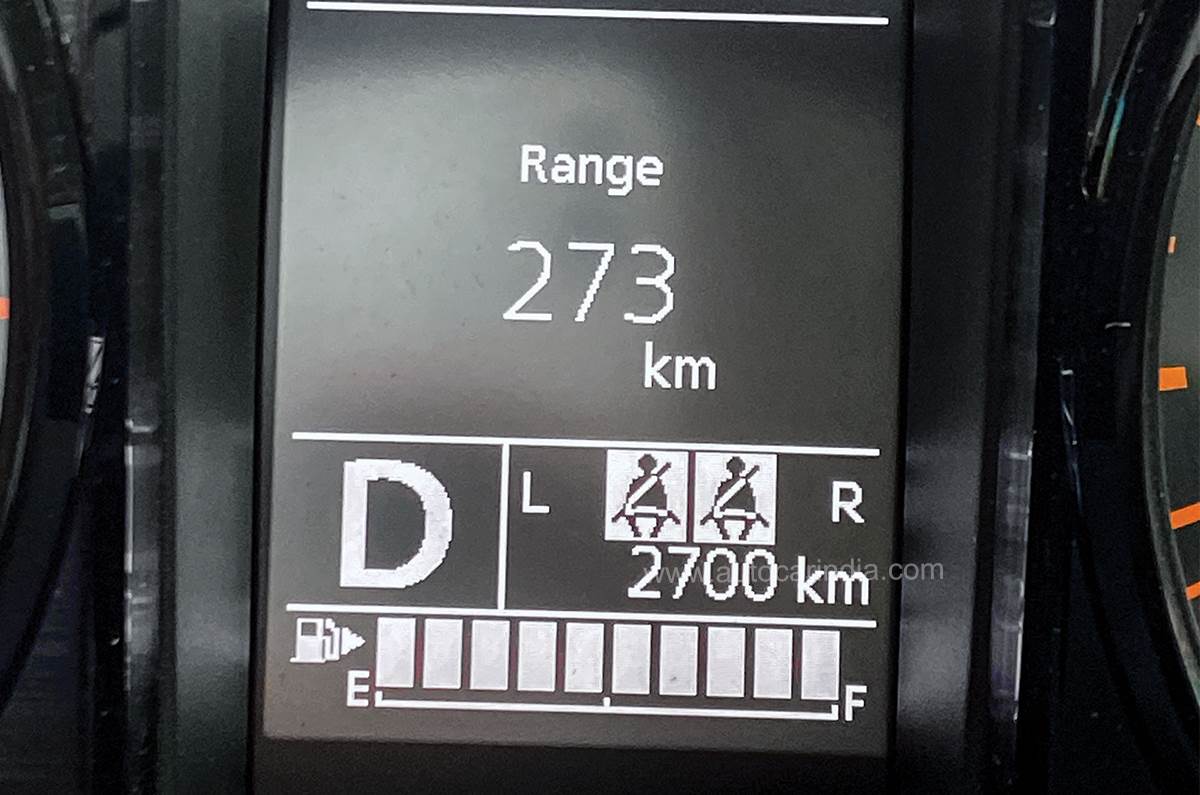First report: Maruti says its Jimny is an off-roader you can use every day. We spend time behind the wheel in the urban jungle to put those claims to the test.
The Jimny is an off-roader first. This is apparent even after just a few minutes behind the wheel. Almost every single part of its body-on-frame construction is specifically engineered or optimised for off-road grip, traction and ground clearance. And it isn’t just the mechanical bits, even the general layout is executed with off-road driving in sharp focus.
This is why I took our long-term mountain goat off-road first. The experience was an eye-opener. And that’s despite the fact that the three-door has been stretched and made into a five-door for India. The Gypsy genes clearly run straight through. It has good traction even though it has mud and snow (all-season) tyres; it has sufficient torque in low (range) to clamber over all but the most vertical obstacles; and what I particularly love is that despite it feeling solidly built, it also feels light on its feet.
In fact, the traditional body-on-frame construction makes it the most solidly built Maruti there is. And it clearly feels tougher, and importantly, stiffer than the Gypsy. This is evident when you shut the doors, slot the four-wheel-drive lever home, or even experience the robust interior. The chunky dash feels built to last, and the design of the cabin, in fact, hits the spot and proffers up the right balance between characterful and sturdy.
You also sit appropriately high – I only fully appreciate how high when a Fortuner pulls up alongside at the traffic lights. And I must say, I really do like the vertical A-pillars and the view out from the flat windscreen. The Jimny also rides over city roads superbly for a body-on-frame SUV. Sure, there is a bit of heave-ho from the rear, as the dumbbell-like live rear axle with its offset differential does a bit of a wobble, and that shudder you get on body-on-frame SUVs is there too, especially if you pay attention.
And it doesn’t take speed breakers too well. This is something I experience often as I traverse Mumbai’s city roads, most of them resembling a war zone with at least six or seven major infrastructure projects all around the island city still under construction.
The other thing that you have to always keep track of are the pop-out fenders as they stick out from the body line and bikers, often get too close to this unpainted part.
The Jimny, however, is pretty comfortable to drive in traffic. The 1.5-litre engine responds well at low speeds, due to the short gearing and strong bottom-end of the engine, and progress is smooth and jerk free. Even the muted whine you get from the gears working away under you adds character.

Has a friendly and tough demeanour, and feels solidly built; it can take a beating.
The steering, however, is weighty at low and especially parking speeds. The long wheelbase and the lack of sufficient steering lock mean U-turns and tight turns while parking can be quite a chore. Getting out of my parking, for example, takes an additional three-point turn.
The other thing the Jimny isn’t great at is going somewhere in a hurry. It’s reasonably quick to 60kph, so you can stay ahead of traffic if you want to. But it soon runs out of puff, and you feel the lack of performance trying to make use of a gap that has just opened up in traffic.

Seat-belt alarm beeps for 90 seconds even if there are no rear seat passengers.
Also, you are acutely aware of the handling of this off-roader as you drive faster. The Jimny’s long track-to-wheelbase ratio, the high centre of gravity and the supple rear suspension mean it flops around and feels sloppy on freeways and faster city roads. A Toyota Innova, also a body-on-frame, is so much more locked down at speed.
What the Jimny – especially in this shade of canary yellow – gets you is plenty of smiles and friendly waves. And then, because it’s a Maruti, people often want more details as they plan to purchase one.

Not sure of where exactly the rear bumper is due to the oddly placed camera.
The narrow cabin does mean you are limited to four; there’s also only four seatbelts and the rear seat-belt reminders don’t work together with seat-embedded weight sensors, so when unbuckled, they chime even if no one is seated there. Also, the considerable step up to the cabin isn’t easy for the elderly. Guess many will fit aftermarket footboards or running boards. There’s also no seat height adjust, no tyre pressure monitor, no rear bottle holder (‘where does my bottle go?’ asks the seven-year-old), no 360-degree camera and an oddly placed reversing camera that’s difficult to ‘read’.
However, the Jimny has something few others do; real character. It’s refreshingly different from the vanilla most cars serve up today, and for the most part, it’s all the better for it.
Also see:


























